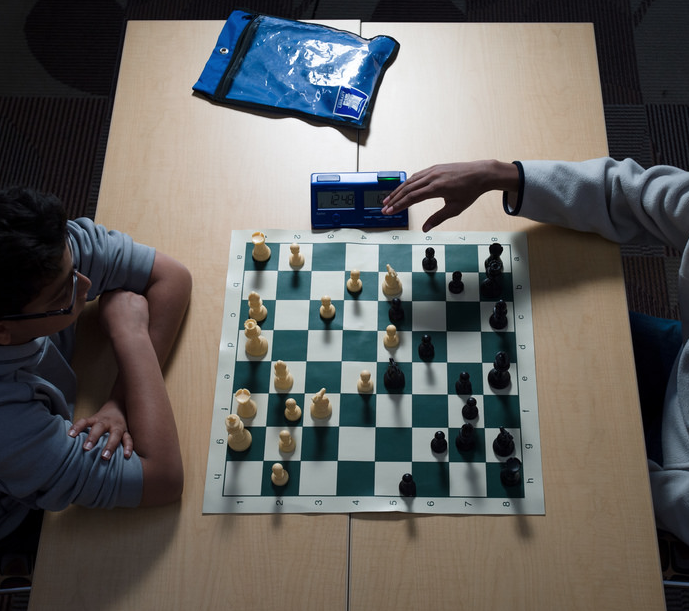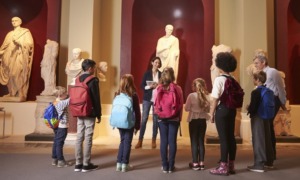
Howard County Library System / Flickr
Chess is starting to become a major player in schools across the country — pun intended.
Chess is starting to become a major player in schools across the country — pun intended. Many officials state that it coincides with the Common Core system being introduced almost nationwide, as chess promotes deep thinking and planning ahead, which are key values promoted by Common Core. Maureen Magee writes in U-T San Diego that:
“Chess is a natural fit with Common Core, which preaches going deep with knowledge and applying it,” said Jay Stallings, a member of the United Chess Federation’s Scholastic Committee. “With chess, you’re thinking five and seven moves deep.”
Some like chess because it makes them feel less alienated at their school, writes Roger Belgrave in the Brampton Guardian. If they are not good at sports, many children do not participate in athletics. Making it onto the chess team, however, makes it so that kids can feel the pride of representing their school at tournaments and competing without having to be athletically inclined.
Recently, one such tournament took place in Mission Valley, California, reports Magee. More than 900 students from 309 different schools and 32 different states went head to head at the 2014 High School K-12 National Championships sponsored by the United States Chess Federation. The highest ranked player will go to participate in the World Youth event that will be held in Durban, South Africa, in September.
Philanthropist Lewis B. Cullman also believes in the power of chess in the school system. Marisa Wong of thirteen.org writes:
“In 1991, Cullman donated $1 million to the educational non-profit Chess-in-the-Schools, which uses chess as an educational tool to promote learning and to help young people develop skills in critical thinking and problem solving. Today, the organization has reached over 500,000 economically disadvantaged kids in over 125 New York City public schools.”
Chess, of course, also has a strong international following. In Romania, schools are being given the option to add chess classes, reports the Romania Insider. Students up to grade four are allowed one optional class per semester.
“During the two years of study, children will learn game situations, as well as how to interpret and observe the adversary’s moves, among others.”






























